In the field of titanium alloy processing,titanium alloy has a series of excellent characteristics.It has a low density of about 4.4kg/DM³,high specific strength(ratio of strength to density),excellent corrosion resistance,good heat resistance,and excellent toughness,plasticity,and weldability.Based on these characteristics,titanium alloys have been widely used in many fields,such as aerospace,automobile manufacturing,medicine,sports goods manufacturing and electrolysis industry.However,titanium alloy is a kind of metal material which is difficult to process because of its poor thermal conductivity,high hardness and low elastic modulus.This paper will summarize some technological measures in the process of cutting according to the technological characteristics of titanium alloy.
Main advantages
1.High strength and low density:Titanium alloy has high strength and low density,with a density of only 4.4kg/DM³,which provides an effective solution for the lightweight of large structural parts.
2.Excellent thermal strength:Titanium alloy can still maintain high strength and work stably in the environment of 400-500℃;in contrast,the working temperature of aluminum alloy is usually limited to below 200℃.
3.High corrosion resistance:Compared with steel,titanium alloy has natural high corrosion resistance.This feature can significantly reduce the cost of daily operation and maintenance of the aircraft.
Special characteristics of titanium alloy processing
1.Low thermal conductivity:Take TC4 titanium alloy as an example,at 200℃,its thermal conductivity is l=16.8 W/m・℃,and its thermal conductivity is 0.036 cal/cm・s・℃,which is only one fourth of steel,one thirteenth of aluminum,and one twenty-fifth of copper.In the process of cutting,the effect of heat dissipation and cooling is poor,which directly leads to the shortening of tool life.
2.Low elastic modulus:Due to the low elastic modulus of titanium alloy,the rebound of the machined surface of the part is large,which increases the contact area between the machined surface and the tool flank,which not only affects the dimensional accuracy of the part,but also reduces the durability of the tool.
3.Hardness affects the processing:the titanium alloy with lower hardness value is easy to become sticky during processing,and the chips are easy to adhere to the cutting edge of the rake face of the tool,forming a built-up edge,thereby affecting the processing effect;while the titanium alloy with higher hardness value is easy to cause tool chipping and abrasion during processing.As a result of these factors,the metal removal rate of titanium alloy is only one quarter of that of steel,and the time required to process the same size of titanium alloy parts is much longer than that of steel parts.
4.Strong chemical affinity:Titanium can not only react with the main components in the air,such as nitrogen,oxygen and carbon monoxide,to form TiC and TiN hardened layers on the alloy surface,but also react with the tool material in the high temperature environment generated by cutting,thus reducing the durability of the tool.
5.The safety of the cutting process is poor:titanium is a flammable metal,and the high temperature and sparks generated in the process of micro-cutting may cause the combustion of titanium chips.

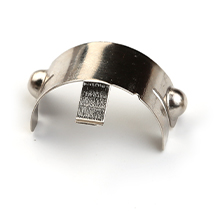
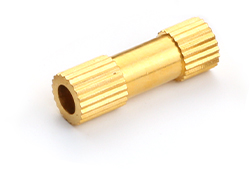
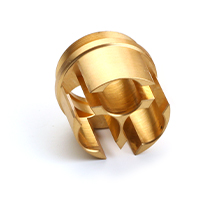
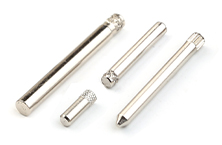
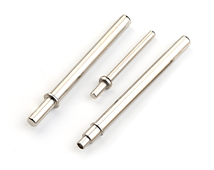
 Return
Return